Бітіруші кафедраларда жобалық, өндірістік, технологиялық, эксперименттік зерттеулерді, ұйымдастырушылық-басқарушылық, операциялық түрлерін орындай алады:
мемлекеттік органдар (министрліктер, әкімдіктер, сондай-ақ олардың аймақтық құрылымдары мен бөлімшелері);
ұлттық және жеке отандық, шетелдік компаниялар, зауыттар мен фабрикалар;
қызметі IT технологияға негізделген компьютерлік компаниялар.
Соның ішінде:
компьютерлік технологиялар инженері;
ақпаратты өңдеудің сандық инженері;
ақпараттық жүйелерді әзірлеуші инженер
ғылыми қызметкер (АКТ саласында),
жүйелік талдаушы. Маман:
АКТ-да бизнес-талдау жүргізу туралы;
АКТ жобасының менеджері;
бағдарламалық жасақтама инженері, компьютерлік жүйелердің әкімшісі.
бағдарламалық өнімдерді қолдау;
веб-парақ әзірлеуші;
графикалық интерфейсті құру және орналастыру бойынша маман. Инженер:
мәліметтер базасын жүргізу туралы; АТ инфрақұрылымының сәулетшісі
ақпараттық технологиялардың инфрақұрылымы;
ақпараттық қауіпсіздік инженері. Маман:
бұлтты есептеу бойынша;
техникалық құжаттаманы әзірлеу туралы;
ақпараттық ресурстарды құру және басқару туралы (контент менеджері);
келісімшарт бойынша маман Жетекшісі:
ақпараттық технологиялар саласындағы және ақпараттық қолдау бөлімшелеріндегі жобалар;
кадастрлық ақпараттық жүйелер;
- ақпараттық ресурстарды қорғауға арналған қондырғылар. Жетекшісі:
компьютерлік орталық және ақпаратты қорғау бөлімі;
есептеу (ақпараттық және есептеу) орталығы және басқалар.
мемлекеттік органдар (министрліктер, әкімдіктер, сондай-ақ
олардың аймақтық құрылымдары мен бөлімшелері);
ұлттық және жеке отандық, шетелдік компаниялар, зауыттар мен фабрикалар;
оқу және ғылыми орталықтар;
мәдениет және денсаулық сақтау, ауыл шаруашылығы;
қызметі IT технологияға негізделген компьютерлік компаниялар
мемлекеттік және жеке компаниялар немесе олардың бөлімдері:
компьютерлер, кешендер, жүйелер мен желілер;
ақпаратты өңдеуге және басқаруға арналған ақпараттық жүйелер;
автоматтандырылған жобалау жүйелері;
ақпараттық жүйелерді ақпараттық қамтамасыз ету
(бағдарламалар, бағдарламалық қамтамасыз ету жүйелері және мәліметтер базасы)
«7M06102» Ақпараттық жүйелер «білім беру бағдарламасына 2
(екі) білім траекториясы кіреді:
№1. «Инжинирингтегі ақпараттық жүйелер» OT Шебердің кәсіби қызметі бағытталған:
ақпараттық жүйелердің компоненттерін құру;
бағдарламалар мен бағдарламалық қамтамасыздандыру жүйесін шығару;
ақпараттық жүйелердің бағдарламалық жүйелерін тестілеу және күйге келтіру;
компьютерлік желілердің желілік қызметтерін орнату, конфигурациялау және басқару;
кәсіптік қызмет объектілерін сертификаттау;
ақпараттық жүйелерді құру, енгізу және сүйемелдеу жобаларын басқару;
кәсіптік қызмет объектілерін жасау және іске асыру процесін ұйымдастыруда технологияларды, құралдарды таңдау;
пайдаланушылардың сұраныстарын, домендік модельдер мен техникалық мүмкіндіктерді талдау негізінде кәсіби қызмет объектілерінің жекелеген компоненттерінің талаптары мен ерекшеліктерін әзірлеу;
ақпараттық жүйелер компоненттерінің архитектурасын жобалау;
аппараттық және бағдарламалық жүйелер үшін адам-машина интерфейсін жобалау;
№2. «Бизнестегі ақпараттық жүйелер» OT
Шебердің кәсіби қызметі бағытталған:
заманауи әдістерге, жобалау құралдары мен технологияларына негізделген математикалық, лингвистикалық, ақпараттық, бағдарламалық және ақпараттық қамтамасыз етуді жобалау, соның ішінде автоматтандырылған жобалау жүйелерін қолдану.
Соның ішінде
АЖ дамыту процесін дайындау
IP талаптарын талдау
IP дизайны
IP бағдарламалау және тестілеу
бағдарламалық модульдер мен IP компоненттерін біріктіру
белгілі бір уақытта кәсіптік қызмет объектілерін дамыту процесінің жеке кезеңдерін ұйымдастыру;
- кәсіби қызмет объектілерін дамыту процесін қабылданған ұйым аясында кадрлар даярлау;
7M061 - «Ақпараттық және коммуникациялық технологиялар»
мамандығы бойынша магистратура келесі кәсіби қызмет түрлерін орындай алады:
1. Бағалау:
ғаламдық техникалық құбылыс ретінде IT технологиясы функцияларының негізгі мазмұнын нақты көрсетуге сүйене отырып, олардың оң және теріс мүмкіндіктерін объективті бағалай білу;
техникалық, ақпараттық және қолдаудың басқа түрлерін қоса алғанда, IT-технологиялардың қазіргі жағдайын объективті түрде бағалай білу, сонымен қатар Қазақстанда және шетелде IT дамуының болжамды болжамы;
ақпараттық жүйелерді дамытудың перспективалық бағыттарын анықтау және бағалау дағдыларына ие болу;
АЖ жұмысын бағалау.
бағдарламалық қамтамасыздандыру кодының талап етілетін сапа өлшемдеріне сәйкестігін бағалау
2. Конструктивті:
ақпараттық қауіпсіздікті және қауіпсіздікті қамтамасыз ету дағдыларын қоса алғанда, IP дамуының перспективалық бағыттарына бағытталған IT-технологияларды дамыту және алға жылжыту;
пайдаланушылардың қажеттіліктерін қанағаттандыра алатын және IT-технологиялардың бүкіл жүйесін басқаратын мәліметтер базасын нақты құрылымдауды қамтамасыз ететін, бағдарламалық және коммерциялық бағытта тиімді бағдарламалық өнімдерді жасай және қолдана білуі;
бағдарламалық қамтамасыздандыру модульдері мен IP компоненттері үшін құрастыру процедураларын әзірлеу және енгізу;
деректерді көшіру және өзгерту (түрлендіру) процедураларын әзірлеу;
типтік деректер базасын жобалау, SQL күрделі сұраныстарын жасау және оңтайландыру;
сәйкес ORM жүйелерін таңдау және қолдану.
- мәліметтер базасымен жұмыс жасау функционалдығын дамыту.
3. Ақпараттық технологиялар:
экономикалық негіздер және агробизнес саласындағы білімге негізделген бағдарламалар жасау мүмкіндігі;
Қазақстанда және әлемдік секторда IT технологиясының негізгі бағыттары, барлық стандарттарға сәйкес келетін барлық рәсімдер мен рәсімдердің сақталуы туралы терең білімге ие болу;
ІТ-технологиялар құралдарын басқару дағдыларына ие болу;
кәсіпорындардың тиімділігін арттыру мақсатында маркетингтік зерттеулер жүргізе білу және IT-технологиялардың кәсіби қызметінде қолдану дағдылары болуы;
мәліметтер базасының сызбаларын жобалау, сұраныстарды оңтайландыру, ДҚБЖ деректерін сақтау және оқу (операциялар,
оқшаулау деңгейлері, индекстер, триггерлер) принциптері;
бағдарламалық қамтамасыздандыру модульдері мен АЖ компоненттерін біріктіру тәсілдері;
ОЖ жұмыс принциптері мен функционалдығы;
бағдарламалық модульдер мен IP компоненттерін құрастырудың әдістері мен құралдары;
АЖ-ны тексерудің әдістері мен құралдары;
кәсіби тілдерді, қызметтік бағдарламаларды және бағдарламалау орталарын қолдана білу
4. Ұйымдастырушылық-басқарушылық:
практикалық іс-әрекетте заманауи техникалық құрылғыларды белсенді қолдана білу;
елдің агроэкономикалық, ұлттық және мәдени ерекшеліктері туралы білімді қолдана білу және оларды өз жұмысында ескеру дағдыларына ие болу;
өндірістегі жазатайым оқиғалар мен жазатайым оқиғалар қаупін азайтуға бағытталған технологиялық регламенттерді әзірлеу және енгізу;
мәліметтер базасымен жұмыс істеуге кадрларды іріктеу және оқыту;
персонал санын есептеу;
персоналды басқару және ақпараттың қорғалуы мен қауіпсіздігін қамтамасыз ету.
5. Зерттеу:
Кәсіби өзін-өзі жетілдіруге, инновациялық ойлау мен шығармашылық әлеуетті, кәсіби шеберлікті дамытуға дайын болу;
Ғылыми зерттеу және педагогикалық қызмет барысында туындайтын және терең кәсіби білімді талап ететін мәселелерді тұжырымдау және шешу;
өндірістік және экологиялық көрсеткіштердің мониторингі, нәтижелерді талдау және өңдеу;
өндірістік объектілердің өнімділігін арттыру әдістері мен құралдарын жасау бойынша ғылыми-зерттеу жұмыстарын жүргізу;
ақпараттық қауіпсіздікті қамтамасыз ету шараларын зерттеу және әзірлеу;
жұмыс орындарын бағдарламалық және техникалық құралдармен қамтамасыз ету бойынша жұмысты ұйымдастыру.
6. Ғылыми-педагогикалық:
оқу бағдарламаларының жаңа мазмұнын әзірлеуге және енгізуге, инновациялық білім беру технологияларын енгізуге дайын;
АКТ-да пәндерді оқытудың заманауи әдістерін зерттеу;
барлық деңгейдегі кадрлардың біліктілігін арттырудың ғылыми негізделген әдістерін жасау;
- оқыту процесінде инновациялық оқыту технологияларын қолдану.
зерттеу әдістемесі саласында;
барлық салаларда, соның ішінде ауыл шаруашылығында
инновациялық техникалық және технологиялық өндіріс мәселелері бойынша;
білім беру ұйымдарындағы ғылыми және ғылыми- педагогикалық қызмет саласында;
кәсіби салада ғылыми жобалар мен зерттеулерді жүзеге асыруда.
олардың зияткерлік және мәдени деңгейінің жақсаруы мен дамуында АКТ-да жаңа зерттеу әдістерін және ақпараттық- коммуникациялық технологиялардың ғылыми- технологиялық дамуын өз бетінше үйренуге;
ақпараттық қоғамды қалыптастыру және дамыту контекстінде білімді басқару: ақпаратты талдау, синтездеу және сыни тұрғыдан қорытындылау және ұсыну;
қолданбалы информатика және ақпараттық- коммуникациялық технологияларды ғылыми-техникалық дамытудың заманауи мәселелері мен әдістерін зерттеуде;
нақты қолданбалы салада ақпараттық қоғамның қалыптасуы мен дамуының заңдылықтарын анықтауда;



